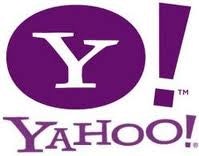Yahoo! Inc. (NASDAQ:YHOO) reported a fairly solid quarter. The company lowered its guidance, but was able to make up for it with revenue growth in search and its other equity interests.

Earnings highlights
The growth in certain business segments was not enough to offset the decline in revenue. However, revenue (excluding traffic acquisition costs) has been able to stabilize to a 1% year-over-year loss for the quarter. The company reported a 1% loss in revenue because the company saw a 2% year-over-year decline in display ad sales, and the price paid per ad has declined by 12%. The company was able to offset this decline with 5% year-over-year revenue growth in its search-advertising business.
The real upside comes from the equity interests that Yahoo! Inc. (NASDAQ:YHOO) has, which it reports as a part of net earnings and not as a part of revenue. This is why the company reports flat revenue, but came out with a 29.17% net profit margin (the company is more profitable than Microsoft Corporation (NASDAQ:MSFT)).
The earnings from its equity interests grew from $286 million in the second quarter of 2012 to $331.15 million in the second quarter of 2013. Yahoo! Inc. (NASDAQ:YHOO) currently owns 24% of Alibaba and 35% of Yahoo! Inc. (NASDAQ:YHOO) Japan. Alibaba reported 71% year-over-year revenue growth and 189% year-over-year net income growth. Yahoo! Inc. (NASDAQ:YHOO) Japan reported 0% year-over-year improvement in net income. The contribution to net income came primarily from Alibaba.
The company grew its earnings per share from $0.19 in the second quarter of 2012 to $0.30 in the second quarter of 2013 (67% year-over-year earnings per share growth). The company had a fairly phenomenal quarter.
The growth in earnings per share came from revenue growth, cost-cutting, and share buybacks:
- Its ownership stake in Alibaba, paired with the revenue growth from search advertising, was the source of revenue growth.
- The company reduced operating expenses by 6.8% year-over-year.
- The total shares outstanding fell from 1.215 billion to 1.079 billion. Shares outstanding fell by 11.1%, which boosted the earning per share figure.
Long-term investment thesis
The company has implemented both short and long-term measures to generate earnings and revenue growth. The revenue growth from Alibaba is not included in the top line GAAP revenue that Yahoo! Inc. (NASDAQ:YHOO) currently reports, but when included, the company’s revenue has been able to grow. One of the primary reasons for owning Yahoo! is its large ownership interest in Alibaba.
However, excluding Alibaba, Marissa Mayer has been focused on improving the overall user experience of Yahoo! mail, Flickr, and its homepage. The company also hopes to generate mobile revenue growth, which has a lot of pent-up potential from emerging market economies.
Mobile monetization

Source: Statista
North America is currently the largest market for mobile advertising spending. Yahoo!, Facebook Inc (NASDAQ:FB), and Google Inc (NASDAQ:GOOG) are banking their hopes on mobile ads to sustain revenue and net income growth in the foreseeable future.
Facebook has opted to advertise within the Facebook Inc (NASDAQ:FB) home page in users’ news feeds. Because there isn’t nearly enough screen space to afford banner ads on smartphone screens, the typical Facebook Inc (NASDAQ:FB) user will scroll through his/her news feed rapidly, so advertising placement isn’t as burdensome to the user experience as some have speculated.
It is likely that Yahoo!’s display advertising business will continue to experience modest declines in pricing, as it addresses the ineffectiveness of advertising to smartphone users. Despite weaknesses in its mobile strategy, Yahoo! should be able to sustain high rates of earnings growth going forward. Analysts are expecting the company to grow earnings by 20.50% for the remainder of fiscal year 2013, and to follow that with 9.2% growth in fiscal year 2014.
Peer comparison
Facebook currently trades at a price-to-sales ratio of 11.4, which is pretty high for a technology stock. The upside to owning the stock is potential improvements in profitability. The company currently operates at a 15% profit margin. The company could potentially generate a profit margin of around 30% (similar to Yahoo! or Microsoft Corporation (NASDAQ:MSFT)), while growing revenue to $8.5 billion by 2014 (consensus estimate). Assuming a 30% net profit margin on revenue greater than $8.5 billion, you can also assume that net income should be above $2.55 billion. Assuming the company earns $2.55 billion in net income over the next two years, Facebook’s current market capitalization of $63 billion can be justified.
Google’s involvement in mobile advertising is primarily driven by ad sales through its search advertising and Play Store purchases. The growth in these two categories is likely to be sustained, as the total addressable market for smartphones is expected to grow to 1.4 billion devices by 2016, according to IDC.
Google had a difficult quarter in terms of profitability. The company currently generates a net profit margin of 22.89%. This is low compared to the potential profitability of the business. Going forward, I believe management will allow revenue to grow at a faster rate than costs. The company is expected to grow sales by 40.3% for the 2013 fiscal year (this growth is driven by the Android Play Store). The company’s five-year average revenue growth rate is 24.77%.
The desired outcome is that the company converts a larger portion of its future revenue growth into more profit. This way, the company’s 28 price-to-earnings multiple is sustainable. Based on historical trends, Google should be able to generate a larger amount of profit and revenue.
Conclusion
Yahoo’s! growth in earnings seems sustainable because the company has been able to lower operating costs, fetch sizable rates of return from its minority interest in Alibaba, and has pent-up growth potential from mobile advertising (although profit maximization on mobile advertising is likely to be difficult). The company’s recent string of acquisitions may be enough to push it into becoming fully web 3.0 capable. Yahoo! may have the most upside over both the short- and long-term.
Google Inc (NASDAQ:GOOG) had a difficult quarter, but its fundamentals remain largely intact. The search business should be able to sustain growth due to emerging market growth. For now, Google Inc (NASDAQ:GOOG) seems to have the best balance in terms of net profit and sales growth. Facebook comes in third because the company has to manage costs better in order for its current valuation to be justified.
The article Yahoo! Knocks Out Wall Street originally appeared on Fool.com is written by Alexander Cho.
Alexander is a member of The Motley Fool Blog Network — entries represent the personal opinion of the blogger and are not formally edited.
Copyright © 1995 – 2013 The Motley Fool, LLC. All rights reserved. The Motley Fool has a disclosure policy.





